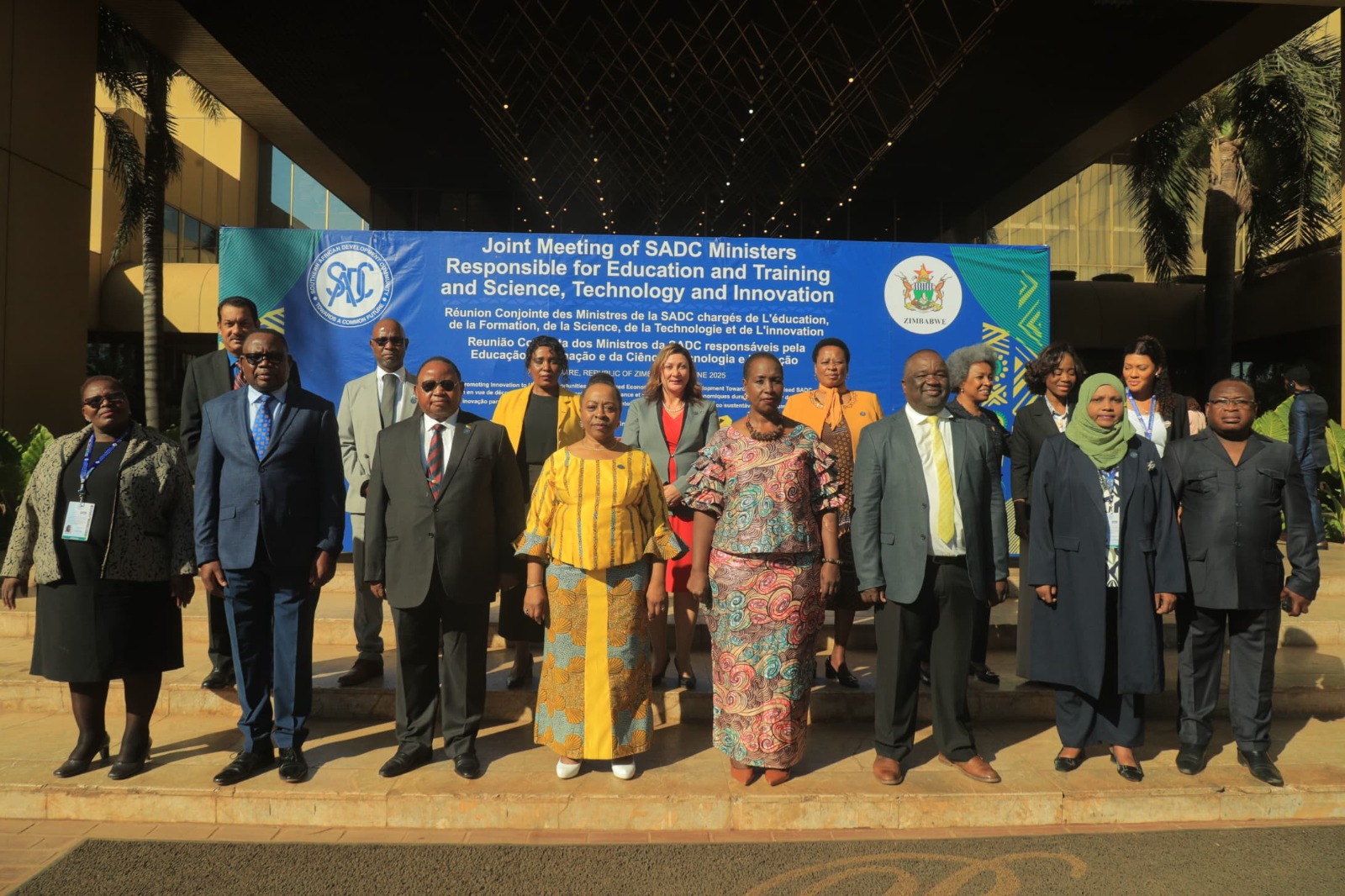 THE SADC University of Transformation is on the cards, amid expectations that the institution will drive the bloc’s industrialisation agenda.
THE SADC University of Transformation is on the cards, amid expectations that the institution will drive the bloc’s industrialisation agenda.
This comes after SADC Ministers responsible for Education and Training and Science, Technology and Innovation converged for a joint meeting aimed at tracking progress made in these sectors and charting a way forward in the regional integration agenda for SADC.
Held under the theme “Promoting Innovation to Unlock Opportunities for Sustainable Economic Development and Development Towards an Industrialised SADC”, the meeting placed strong emphasis on education and innovation as key enablers for regional transformation.
The Minister of Higher and Tertiary Education, Innovation, Science and Technology Development, Ambassador Frederick Shava, underscored the collective responsibility of SADC member states to advance higher education and harness science and technology for sustainable economic growth.
“As we gather here, we are reminded of our collective responsibility to chart a strategic course for higher education, science, and technology in the Southern African Development Community for the sustainable economic growth and industrialisation of our region, as espoused in our theme “Promoting Innovation to Unlock Opportunities for Sustainable Economic Development and Development Towards and Industrialised SADC”. Through our joint efforts we can unlock the immense potential of our youths, harness the rapid advances in science and technology, and achieve sustainable development for our nations,” he said.
“The SADC Chairperson, President Emmerson Mnangagwa has reminded us many times that education and science and technology are the anchor upon which we can build a prosperous future. No nation can ever rise above the level of its education system. Education remains the bedrock for innovation, industrialisation and modernisation”.
He further highlighted Zimbabwe’s adoption of a heritage-based Education 5.0 model, which seeks to produce graduates with practical skills, equipped to support national development through industrialisation and innovation.
“In this regard, Zimbabwe supports the establishment of the SADC University of Transformation which has the potential to bridge the academia and industry gap by producing graduates with skills needed in industry and who can be job creators as opposed to job seekers for the attainment of SADC’s industrialisation roadmap.”
SADC Deputy Executive Secretary for Regional Integration, Ms. Angele Makombo N’tumba added that the university will be a strategic initiative designed to meet the region’s demand for skilled human resources and foster industrialisation.
“The proposed university aims to enhance human capital by producing graduates in three priority value chains; pharmaceuticals, mineral beneficiation and agro-processing. Additionally, it will focus on entrepreneurial skills, and innovation through short courses, as well as undergraduate and graduate programmes where needed,” she said.
“The SADC University of Transformation is a strategic initiative designed to meet the region’s demand for skilled human resources, fostering industrialisation and economic growth. In this regard, the Secretariat, with the support of the African Development Bank and RUFORUM, has commissioned a baseline study on innovation and entrepreneurship ecosystem in the SADC region. The study provides an in-depth analysis of the status of the entrepreneurship and innovation ecosystem in the SADC region.”
The joint ministerial meeting is expected to culminate among other things in the signing of the SADC Charter on the establishment of the Women in Science, Engineering and Technology Organisation (WISETO) by Zimbabwe, joining 11 other countries who have signed the agreement since its approval by the SADC Council of Ministers in 2017 in Pretoria, South Africa.

